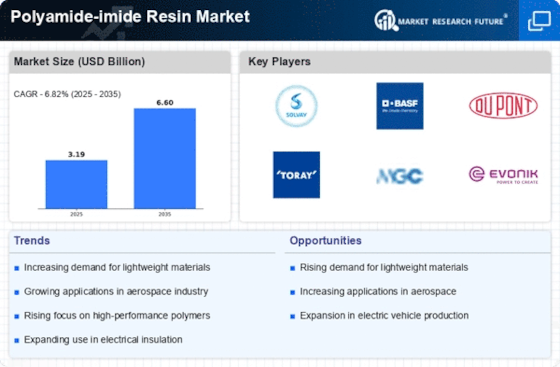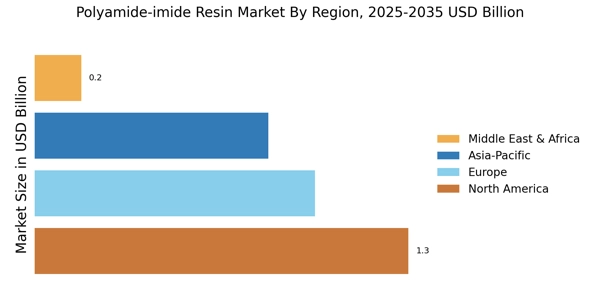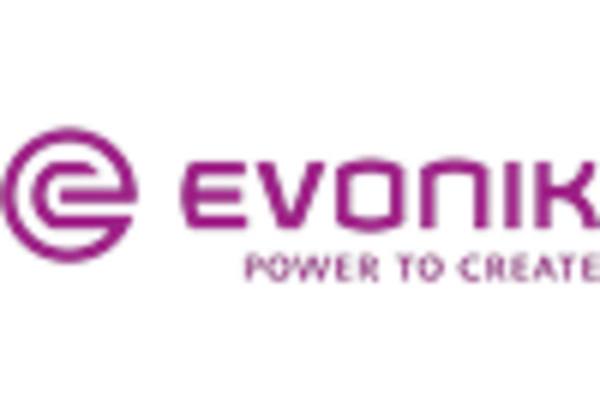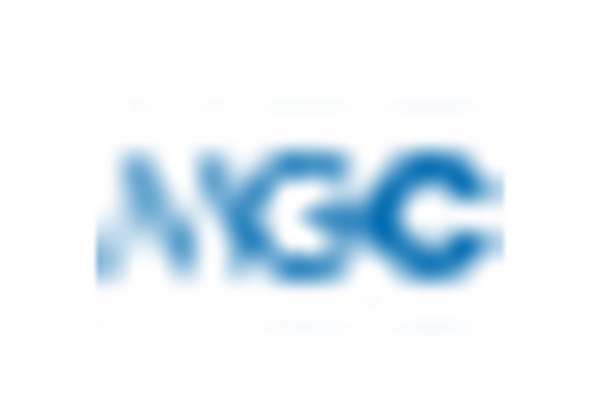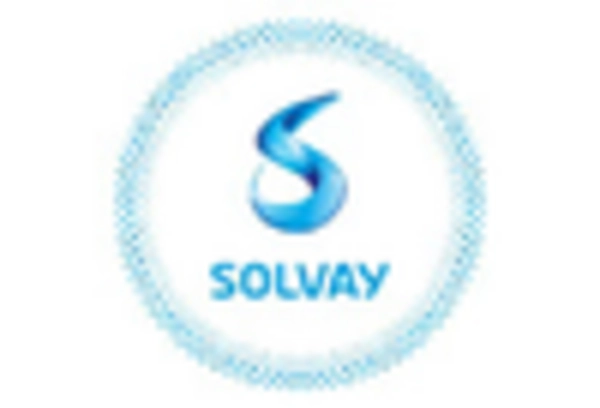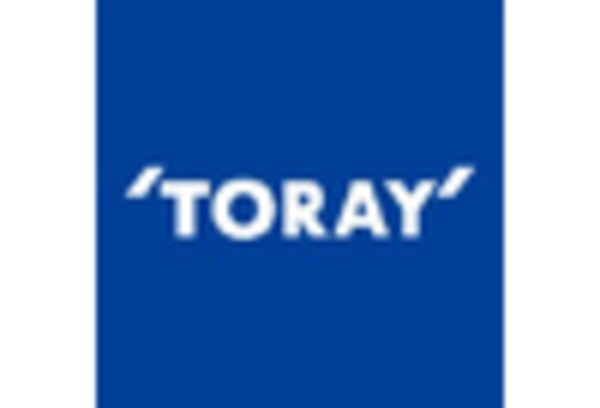Expansion in Automotive Sector
The Polyamide-imide Resin Market is poised for growth due to the expanding automotive sector, which increasingly requires advanced materials for various applications. As vehicles become more sophisticated, the demand for lightweight and durable components rises. Polyamide-imide resins are particularly valued for their high thermal stability and resistance to wear, making them suitable for engine components, electrical systems, and interior parts. The automotive industry is projected to see a significant increase in the use of polyamide-imide resins, driven by the need for improved fuel efficiency and reduced emissions. This trend suggests a promising future for the Polyamide-imide Resin Market, as automotive manufacturers continue to innovate and seek materials that meet stringent performance standards.
Growing Focus on Sustainability
The Polyamide-imide Resin Market is increasingly influenced by a growing focus on sustainability and environmental considerations. As industries strive to reduce their carbon footprint, there is a rising interest in bio-based and recyclable materials. Polyamide-imide resins, known for their durability and longevity, are being evaluated for their potential to contribute to sustainable practices. Manufacturers are exploring ways to produce these resins with reduced environmental impact, which may include the use of renewable resources. This shift towards sustainability is likely to create new opportunities within the Polyamide-imide Resin Market, as companies seek to align their products with consumer preferences for environmentally friendly materials.
Increasing Adoption in Electronics
The Polyamide-imide Resin Market is witnessing a notable increase in demand from the electronics sector. This is primarily due to the material's excellent thermal stability and electrical insulation properties, which are essential for high-performance electronic components. As the electronics industry continues to evolve, the need for lightweight and durable materials is becoming more pronounced. In 2025, the market for polyamide-imide resins in electronics is projected to grow significantly, driven by advancements in technology and the miniaturization of devices. Manufacturers are increasingly utilizing polyamide-imide resins in applications such as circuit boards and connectors, where reliability and performance are paramount. This trend indicates a robust future for the Polyamide-imide Resin Market, as it aligns with the ongoing innovations in the electronics field.
Rising Demand in Aerospace Applications
The Polyamide-imide Resin Market is experiencing a surge in demand from the aerospace sector, where the need for lightweight and high-performance materials is critical. Polyamide-imide resins offer exceptional mechanical properties and thermal resistance, making them ideal for various aerospace applications, including insulation and structural components. The aerospace industry is projected to expand, with an increasing number of aircraft being manufactured and upgraded. This growth is likely to drive the demand for polyamide-imide resins, as manufacturers seek materials that can withstand extreme conditions while maintaining structural integrity. The Polyamide-imide Resin Market is thus positioned to benefit from this upward trend, as aerospace companies prioritize materials that enhance performance and safety.
Technological Advancements in Manufacturing
The Polyamide-imide Resin Market is benefiting from ongoing technological advancements in manufacturing processes. Innovations such as improved polymerization techniques and enhanced processing methods are enabling manufacturers to produce polyamide-imide resins with superior properties and consistency. These advancements are likely to lead to a broader range of applications, as industries seek materials that can meet specific performance criteria. Furthermore, the development of new formulations may enhance the versatility of polyamide-imide resins, making them suitable for even more demanding applications. As these technologies continue to evolve, the Polyamide-imide Resin Market is expected to experience growth, driven by the increasing capabilities of manufacturers to meet diverse market needs.


